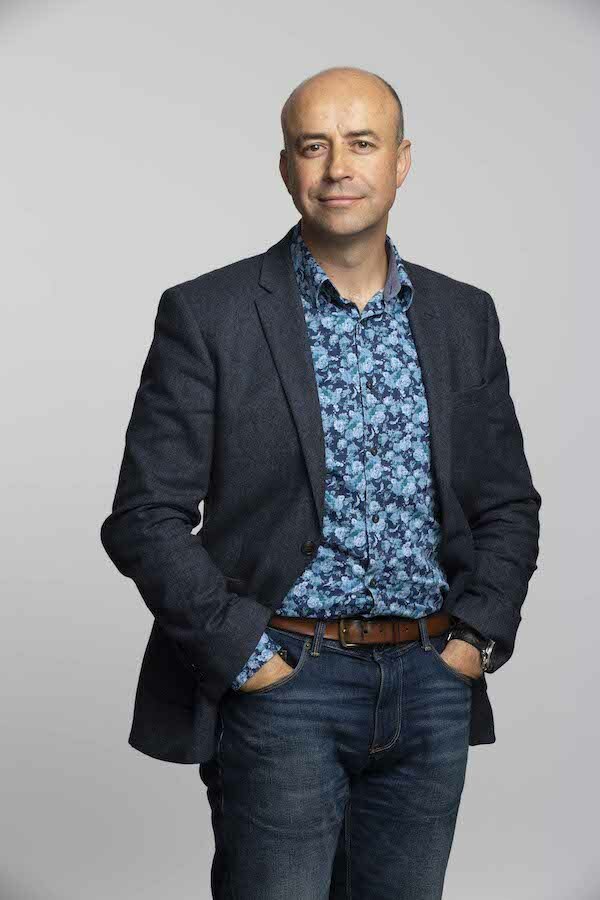This is a profile from the 2020 version of the DataIQ 100.
The 2021 list is available here
Martin Willcox, vice president technology EMEA, Teradata

Path to power
Three mostly lost years in academia as a PhD student did at least expose me to scientific computing with Fortran and the nascent World Wide Web – and my enthusiasm for them ultimately led to my conscious uncoupling from a career as a lab rat.
Two years as a business analyst and as a project manager in the IT department at Asda Stores were followed by two years as a consultant at Syntegra – and then five years at Co-operative Retail and Co-operative Group as its first data warehouse manager and then group data architect.
Having worked extensively with Teradata throughout my period at the Co-op, joining the company felt like a natural next step. I started at Teradata as an enterprise architect, had a spell in technology marketing and then ran Teradata’s big data centre of excellence in EMEA, before moving into a senior management role in our professional services organization.
Today, I head-up an EMEA-wide team of enterprise architects, data scientists and cloud architects charged with helping Teradata’s EMEA customers to define and execute their data and analytic strategies. Teradata has a happy knack of attracting and retaining some very, very good people - which means that the last 15 years have flown by.
What is the proudest achievement of your career to date?
I was part of the team that persuaded a major UK bank to adopt a new data and analytic strategy and to migrate away from a failing technology platform. That involved persuading and influencing at all levels in what we would now refer to as a globally systemically important bank - and also leading the technology team that executed one of the most complex benchmarks that Teradata had ever delivered in EMEA. Winning that deal made me proud; seeing Team Teradata execute the complex migration required to get the customer into production on-time and on-budget made me prouder still.
Who is your role model or the person you look to for inspiration?
There are so many. Teradata CTO Stephen Brobst, for sure, Erik Brynjolfsson and Andrew Ng. We work closely with Professor Andrew Stephen and his team at the University of Oxford – they are a constant source of inspiration. Closer to home, I wish I had my wife’s patience and quiet determination.
Did 2019 turn out the way you expected? If not, in what ways was it different?
Yes and no. I think we now have a much more vibrant public cloud marketplace, with three genuine heavyweight providers in the EMEA marketplace – and that’s a good thing. I think there was a renewed emphasis on good data management in 2019, after some of the worst excesses of the go-go “just throw it in the lake!” days – and that’s a good thing, too. But I still see a lot of companies focusing too much on algorithms and not enough on building-out flexible and extensible data platforms. And the simple truth is that we just can’t scale the former without the latter.
What do you expect 2020 to be like for the data and analytics industry?
I’m not sure what to expect, but I hope that 2020 is the year that we collectively get real – because as an industry it feels like we’ve wasted a lot of time and energy on “shiny object syndrome” during the last decade. What matters is what works - so we need to start with the end in mind, stop deploying cool new technologies just because we think that everybody else is and remember that there’s never a return until we get into production. Experimentation and fail-fast-learn-quick have their place, but I see too many projects that are destined never to leave the lab.
Data and technology are changing business, the economy and society – what do you see as the biggest opportunity emerging from this?
I think that a lot of us rather naively assumed a few years ago that social, mobile and analytic technologies would only ever be positive forces in society and politics; that they would inevitably lead to greater transparency and more democracy. But between fake news, filter bubbles and privacy breaches, it hasn’t always worked out that way and I’d like to see the industry at large take more responsibility for helping to address some of those more negative societal consequences. If we want to take the credit for the undoubted benefits, then we ought to be prepared to own the issues, too.
What is the biggest tech challenge your clients face in ensuring data is at the heart of their digital transformation strategy?
The big, worthwhile challenges and opportunities in complex organisations require the optimisation of end-to-end value chains and that means integrating data and deploying analytics at scale. That’s partly about technology, but it’s also about organisation and governance. “Tidy data” doesn’t just spontaneously emerge, it requires sustained executive attention and sponsorship and that’s something that plenty of organisations still struggle with. I think that if we take the long view of digitisation, we also have to conclude that fully realising the benefits of ubiquitous machine learning is going to require us to fundamentally change a lot of existing business practices and processes.
DataIQ is a trading name of IQ Data Group Limited
10 York Road, London, SE1 7ND
Phone: +44 020 3821 5665
Registered in England: 9900834
Copyright © IQ Data Group Limited 2024